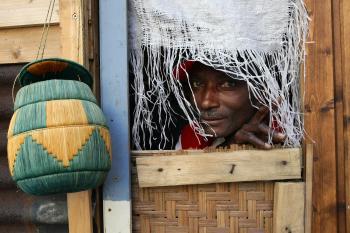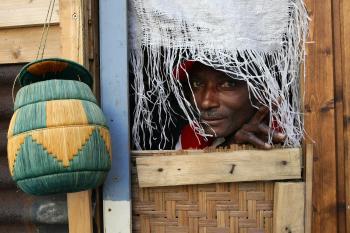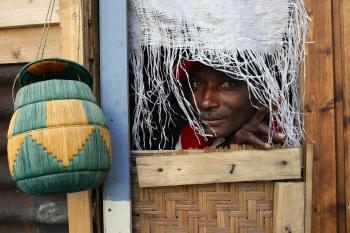Improvements for Asylum Seekers Do Not Go Far Enough
The Australian Immigration Department has improved under the Rudd Government but attitudinal change is still needed, say refugee advocates.

Abioseh Kamara from Medecins Sans Frontieres, peers out from an exhibition refugee camp built in the centre of Sydney last year to raise awareness of asylum seekers. Torsten Blackwood/AFP/Getty Images
|Updated:





